While most pet parents want to treat their cats well and rarely intentionally do things that stress their cats out, the fact is that humans often unknowingly do things that cause stress to cats. Here are the top ten things that cats hate that can cause stress, and how to mitigate or avoid these issues altogether.
1. Loud Noises
In nature, loud noises can indicate a dangerous predator which can result in a cat becoming increasingly aggressive
Loud noises make cats very nervous for very good reasons: in nature, loud noises can indicate a dangerous predator that could potentially ruin a cat’s day. When a cat hears a loud noise it activates the part of their brain that governs the fight, flight, or freeze response.
This can result in increased aggression towards people or other pets, skittish behavior, loss of appetite, over-grooming that can result in bald patches, or litterbox problems.
2. Dirty Litterboxes
When it comes to toilet hygiene, cats like it squeaky clean and not fancy
Litterbox problems (i.e. not using it and instead going somewhere else in the house) are some of the leading reasons why cats are relinquished to shelters. When it comes to toilet hygiene, cats like it squeaky clean and not fancy.
Dirty or crowded litterboxes can lead to stress in cats, which can manifest as inappropriate elimination, i.e. urinating and/or defecating outside the litterbox, probably where you don’t want them to go.
Scoop the box daily removing any feces and clumped urine, refresh the litter every 2-3 days, and keep it deep enough so that the cat can scratch and cover feces.
3. Litterbox Accoutrements
Move your cat’s litterbox away from the furnace or boiler and help her resolve her litterbox issues
Hoods, lids, plastic liners, electronic scooper thingies – at the end of the day, we buy all this stuff for ourselves. The hard truth is most cats hate fancy litterboxes and prefer a plain, quiet box located in a low traffic area to all the bells and whistles any day.
If you have a fancy litterbox don’t despair – just get an additional plain box that has low sides and let your cat make the choice themselves! In addition, cats don’t love fancy scented litter, they prefer fine sandy unscented clumping litter.
One more pro tip: many people keep the litterbox in near the furnace or boiler. Most cats don’t really like that, so if your cat is having litterbox issues, try moving the box!
4. Petting in the No-No Zone
In nature, cats are both predators and prey, and because of that have some specific areas of the body they consider vulnerable and don’t want to be rubbed in
While there are always exceptions to the rules, in general, cats don’t like belly rubs or petting on the sides of their abdomen. The reason for this is these areas feel very vulnerable to cats, who are both predator and prey in nature.
Cats will tell you they don’t like something if they start swishing their tail, have dilated eyes (their eyes look more black) or they start growling during a petting sesh. Cats prefer rubs around their head and neck, and some like long strokes down their back that end at the base of the tail.
5. Bathing
You can try to train a cat to tolerate bathing and water, but don’t force the issue with them
There is that one cat that one time on the internet that everybody talks about because it loves laying in a sink with the water turned on, but in general, cats don’t like getting wet.
Bathing can be very scary to cats, and furthermore, fur that is weighed down by water can feel very strange to cats and they don’t appreciate it. While you can train a cat to tolerate bathing and water, if they don’t like getting wet, don’t force the issue with them.
6. Medicine
If you need to give medicine to your cat, try compounding it into tasty liquids or chews flavored with fish or chicken; or crush medicine and hide it in canned food
Cats don’t like it when we force liquid or pills down their throat or rub funny smelling creams and lotions onto them. They don’t know we are trying to help, all they know is that you are doing something to them that they don’t like.
In general, if your cat needs medicine, there are many options available to help the process go more smoothly. You can have most medicines compound into tasty liquids or chews flavored with fish or chicken. Alternatively, you can crush medicine and hide it in canned food, or in a pill pocket, or coat the pill with butter to help it slide down.
Some medicines can even be formulated into a transdermal lotion that you can rub into your cat’s ear during your daily cuddle sessions. Other medicines can be delivered via a single long lasting injection that is delivered by your vet so they are the bad guy instead of you.
If your cat needs medicine, ask your vet for formulation options that will preserve the relationship between you and your cat by making it easier and more enjoyable. If you do have to give your cat a pill, follow up with syringing a small amount water in their mouth after you give them a pill to avoid the pill getting stuck and causing inflammation in the esophagus.
7. Stray Cats
Some of the ways to reduce this stress are by utilizing calming feline pheromone sprays, remote devices that discourage cats from entering your yard, and calling animal control
Cats are very sensitive to who is in their territory. They form very tight social groups, and if a strange cat wanders into their ‘territory’ that can make them really angry! Even indoor cats can get riled up by seeing a strange cat out the window!
This stress can manifest in several ways, from increased displaced aggression on other cats or people in the household, to howling or overgrooming, to loss of appetite, to spraying and litterbox problems.
You can reduce this stress by utilizing calming feline pheromone sprays like Feliway, utilizing remote devices that discourage cats from entering your yard, and calling animal control to come pick up feral stray cats.
8. Cat Carriers
It’s important to build a positive association with your cat and the carrier, and this can be done with practice and patience
Anything that you put a cat in and take your cat somewhere else can be construed in a cat carrier. Sometimes you have to transport a cat in a carrier, so it is best if you can help your cat be comfortable in a carrier.
Ways to do this include leaving the carrier open around the house so your cat can investigate it, putting food, toys, water, or treats in the carrier, conducting short practice sessions where you carry your cat in the crate or put the crate in the car.
Always build a positive association with your cat and the carrier, that way when the cat has to be transported in the carrier, it doesn’t create an additional source of stress.
9. Car Rides
Cats dislike car rides because they often only ride in cars when they are going somewhere they don’t totally love, but can also get motion sickness which isn’t pleasant
In addition to crate anxiety, most cats don’t enjoy car rides. Cats often only ride in cars when they are going somewhere that they don’t totally love – like the veterinarian, boarding, or grooming. This makes car rides stressful and anxiety-provoking in most cats.
Cats can also get motion sickness, which can manifest as excessive howling or meowing, pacing, drooling, vomiting, and loss of appetite. If your cat has any of the signs of motion sickness or anxiety during a car ride, talk to your vet about medication that prevents motion sickness or anxiety medication.
Pheromone sprays can also help reduce stress. Pro tip: crates placed on car seats are tilted, which is stressful! If you place your cat’s crate on a car seat during rides, prop the bottom of the crate up with a towel to create a level surface for your cat to rest upon during the ride.
To reduce distraction or the possibility of your cat getting lost if you open a door, do not let your cat wander around the cabin when the car is in motion.
10. Change
Some of the signs your cat is stressed include eliminating outside the litterbox, hiding more, trying to escape more, increased aggression, changes in appetite, changes in grooming, or personality changes
Cats are like humans in one way: they don’t like change. They like routine, they like the same food, the same treats, the same people and pets in their environment. Some cats can become very stressed when you have visitors in your home, during renovation, when you change their food, litter types, box locations, etc.
Stressed cats let us know how they feel by eliminating outside the litterbox, hiding more, trying to escape more, increased aggression, changes in appetite, changes in grooming, or personality changes.
Try to maintain routine and minimize changes in your household for the sake of your cat or cats, and if you have to introduce change, go slowly, stay calm, and work with your vet if your cat exhibits any signs of stress.
The 10 Things That Cats Hate Most Info-graphic



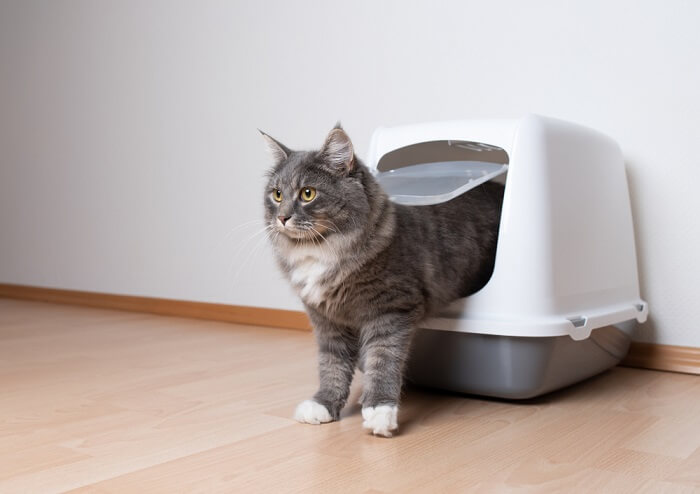
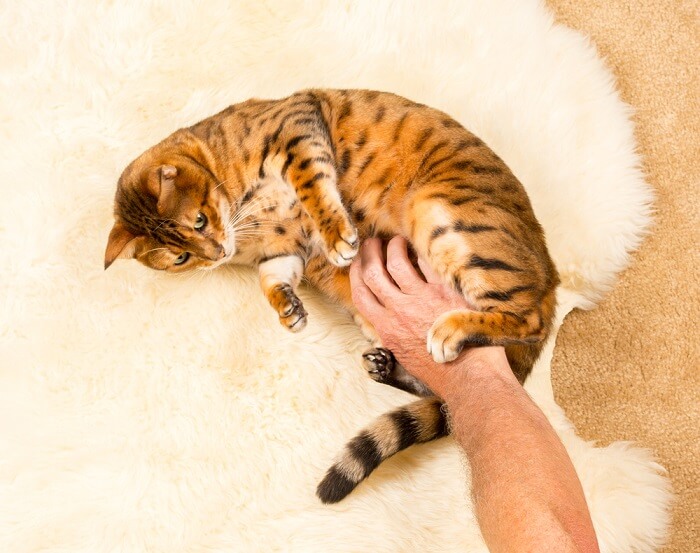
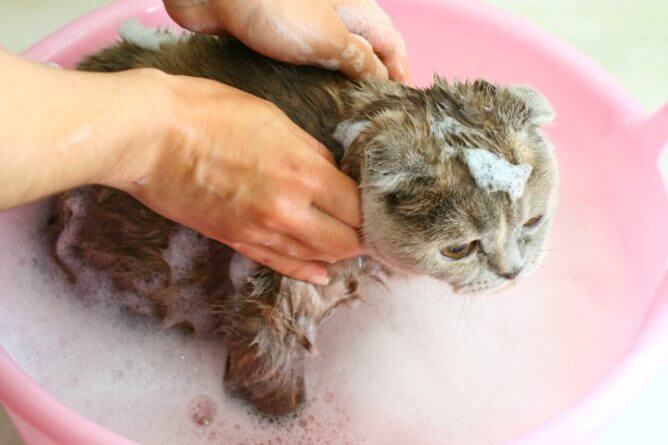
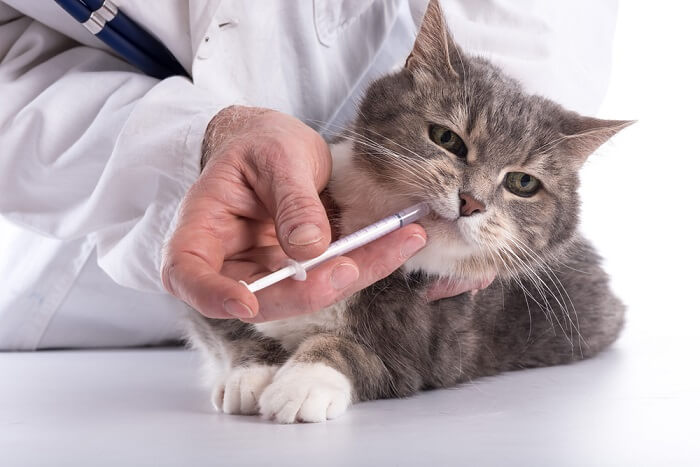
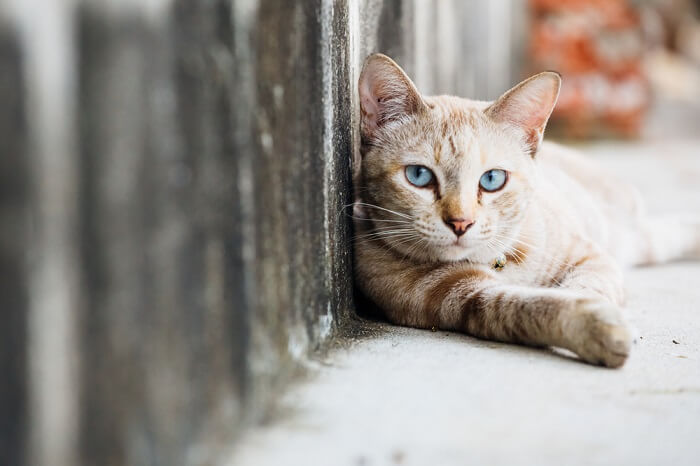
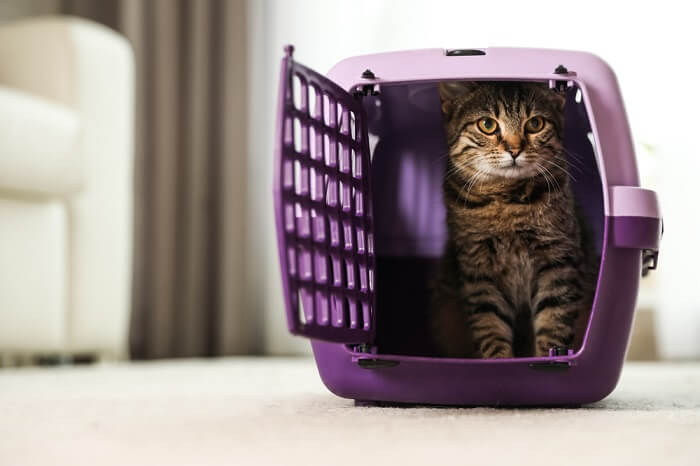
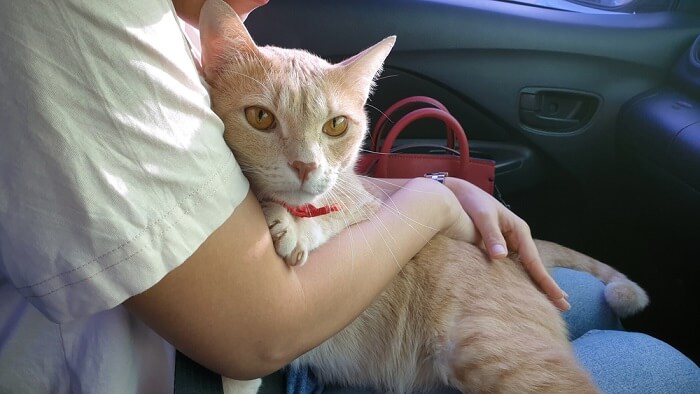

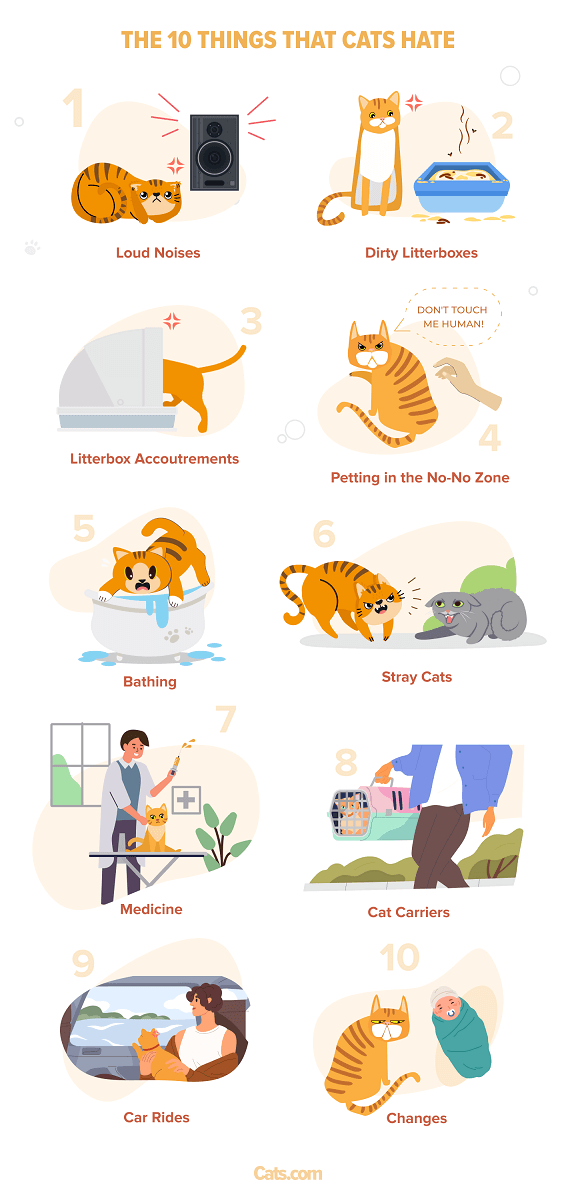

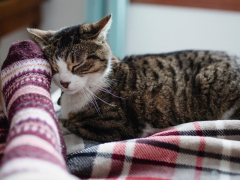
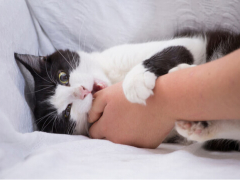
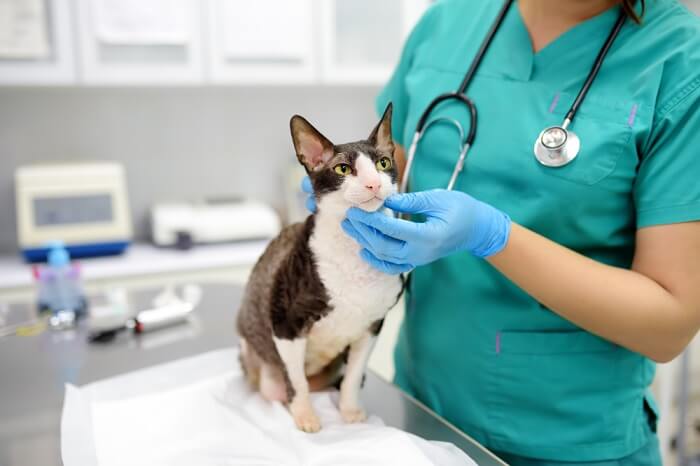

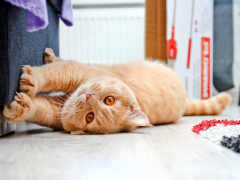

I appreciate the article I am a senior lady and live alone my Lily is my baby and I find the whole article very interesting since I dint have a cat for many many years So far I don’t have any problems with my Lily she is four years old she eats regular poops regular I wonder if I need to have checked I will appreciate any suggestion
I appreciate the article I am a senior lady and live alone my Lily is my baby and I find the whole article very interesting since I dint have a cat for many many years So far I don’t have any problems with my Lily she is four years old she eats regular poops regular I wonder if I need to have checked I will appreciate any suggestion
one other note re cats travelling in cars… put a sheet or blanket over the carrier so they can’t see out. It calms them and reduces motion sickness.
Good tip! Thanks.
I had a foster cat last year who had to go to the vet clinic at least once a month. It was a 45-min ride each way. He was unhappy when both my husband and I were in front, and he was behind my seat where he couldn’t see me . . . a little better when we strapped his carrier behind my husband’s seat so he could see me . . . and perfectly content once I started sitting in the back with him. (Not likely to help anyone who’s traveling alone with a cat, I know!)
I have a cat that is 16 years old. She is a very quiet cat and is, of course, precious. For some reason she has started hissing to my daughter (adult daughter) for no known reason. Any ideas of what could be going on? She has hissed at me a couple of times. Mind you, she is so precious to us; so she is NEVER mistreated.
Thanks for any help you can offer.
Hello Jamie, thanks for the comment! That’s very interesting. I would look for changes in your daughter’s life or behavior. Has she dyed her hair, lost a lot of weight, or started wearing a different type of clothing? Has she been meeting other pets outside of the home? Is she coming home in the morning rather than the evening or making any other changes to her routine? Any sort of sudden change in smell, visual effect, or habits could cause your cat to associate your daughter with stress. It sounds like she has also hissed at you a couple of times, but it’s unclear if this is new or coincides with the hissing at your daughter. I would also wonder if your cat is hissing due to pain or other forms of stress. You might want to bring her to the vet to rule out any oral pain or other issues common among older cats. I’m not sure why your daughter, specifically, would become a trigger if your cat were in pain, but it’s certainly worth considering. I hope you’re able to resolve this soon!
My daughter has a spine cat. We tolerate each other. His is ANNOYING BC AND ACCEPTING OF ONE ANOTHER. Cats don’t ‘appreciate/respect boundaries.. stay out of my room/ my bed, bod covers and my living room chair.👎🏿🦾👺☠️
Please consider updating #7 regarding feral cats. Calling animal control is generally very traumatic for the feral cat and a near certain death sentence. Many communities have volunteer groups that specialize in alley cats. They understand how to trap, spay/neuter and adopt or release them into a controlled community. Try searching “TNR” (trap, neuter, release) or cat rescue in your area. These are still beautiful souls deserving of our care.
Hi Paige, that’s an excellent point. I’ll contact the post author and see how she feels about editing this piece to recommend contacting a TNR group or rescue instead of animal control. Thank you!
Thank you for this information, most of which is very helpful. But to suggest calling animal control for a cat in the yard — good heavens,, no. The errant kitty could be someone’s pet, or could be living successfully outside in a colony or on its own. You could perhaps set up.a little box shelter, Calling animal control could result in the needless capture or euthanasia of the innocent outside kitty, Please only call animal control if the outside kitty is in some distress.
Thank you for the comment. It’s a good one—I’m getting approval on the change now. – Mallory
Why does my cat want me to hold her all day when I get up she has to too and meows that sounds like mom ?
She never was this way until I had to leave her and her sister alone one night.
It’s hard to say! Cats can exhibit behavioral changes for many different reasons, but it seems likely that your cat is reacting to the anxiety of being left alone that night.
Hi Mallory, I apologize if I sounded strident about not calling animal control on an outside kitty. Thank you very much for working to change the article, and for loving and caring about our beautiful feline friends! – Jane
No, that’s completely understandable. I appreciate you calling that out—it’s a significant point! Thanks for the support.
Yh Oh my way back home to daty to get the results to get a hold of me I don’t be A stranger in a way back homes in new Hampshire have a good night my sweet sweet dreams baby girl I hope your week
you are doing better now that we are not doing anything today and tomorrow is a way back
I think my Kimi is stressed out. My son gave him a bath last Sunday, and beginning Monday till now, he can’t eat food; he breathes rapidly, and when I brought him in to the vet this morning, all the tests were negative. The vet only told me that he is dehydrated, has an electrolyte imbalance, and has a liver problem from a week without eating. Tomorrow, my son has already booked a check-up online to learn more because he is dissatisfied with the findings this morning. I hope that spray can help him. I will tell my son to buy that pheromone spray to calm him. I think the cat was shocked by that bath because it was his first time bathing this year. Thanks for this article, and I understand it well.
Hope Kimi feels better soon!
Cats are awesome! because that some pretty cool personalty’s.